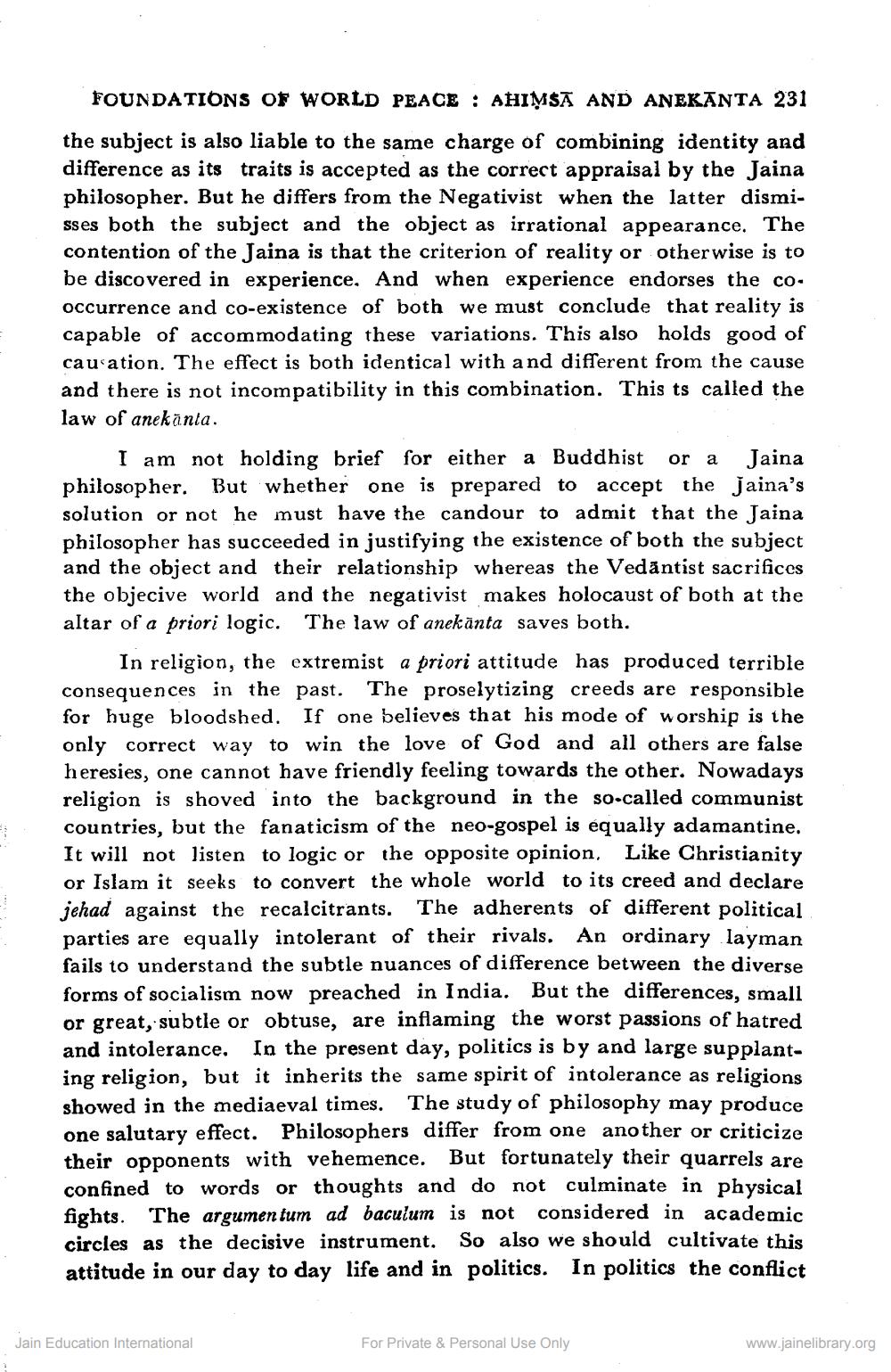________________
FOUNDATIONS OF WORLD PEACE : AHIMSA AND ANEKANTA 231 the subject is also liable to the same charge of combining identity and difference as its traits is accepted as the correct appraisal by the Jaina philosopher. But he differs from the Negativist when the latter dismisses both the subject and the object as irrational appearance. The contention of the Jaina is that the criterion of reality or otherwise is to be discovered in experience. And when experience endorses the co. occurrence and co-existence of both we must conclude that reality is capable of accommodating these variations. This also holds good of causation. The effect is both identical with and different from the cause and there is not incompatibility in this combination. This ts called the law of anekānta.
I am not holding brief for either a Buddhist or a Jaina philosopher. But whether one is prepared to accept the jaina's solution or not he must have the candour to admit that the Jaina philosopher has succeeded in justifying the existence of both the subject and the object and their relationship whereas the Vedāntist sacrifices the objecive world and the negativist makes holocaust of both at the altar of a priori logic. The law of anekānta saves both.
In religion, the extremist a priori attitude has produced terrible consequences in the past. The proselytizing creeds are responsible for huge bloodshed. If one believes that his mode of worship is the only correct way to win the love of God and all others are false heresies, one cannot have friendly feeling towards the other. Nowadays religion is shoved into the background in the so-called communist countries, but the fanaticism of the neo-gospel is equally adamantine. It will not listen to logic or the opposite opinion. Like Christianity or Islam it seeks to convert the whole world to its creed and declare jehad against the recalcitrants. The adherents of different political parties are equally intolerant of their rivals. An ordinary layman fails to understand the subtle nuances of difference between the diverse forms of socialism now preached in India. But the differences, small or great, subtle or obtuse, are inflaming the worst passions of hatred and intolerance. In the present day, politics is by and large supplanting religion, but it inherits the same spirit of intolerance as religions showed in the mediaeval times. The study of philosophy may produce one salutary effect. Philosophers differ from one another or criticize their opponents with vehemence. But fortunately their quarrels are confined to words or thoughts and do not culminate in physical fights. The argumen tum ad baculum is not considered in academic circles as the decisive instrument. So also we should cultivate this attitude in our day to day life and in politics. In politics the conflict
Jain Education International
For Private & Personal Use Only
www.jainelibrary.org




